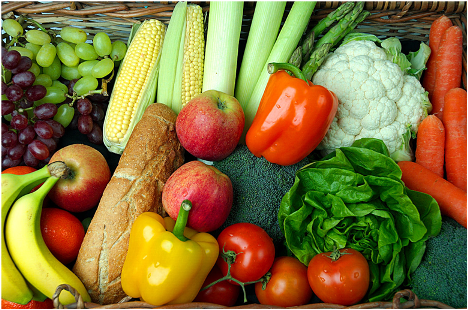Get Your Essential Nutrients – the Vegan Way
Recently, we’ve seen a series of studies about the importance of food substances such as omega-3 fatty acids and iodine for our health. From curing depression to boosting your memory, it seems that getting your nutrient balance right can improve your life in every way.

Forget dairy and fish – you can easily get all the “wonder” ingredients that your body needs from a healthy plant-based diet and without any of the potentially harmful side effects that result from eating animal products. If you have a varied and balanced diet with plenty of fresh fruit and veggies, it’s likely that you’re already getting everything that you need. But there are a few things that you might want to be aware of and make sure that you’re eating in sufficient amounts.
Here’s our rundown of essential nutrients and how to include them in your diet without hurting a hair on an animal’s head:
- Iodine: We don’t need a lot of this nutrient, but it’s vital for good thyroid function and is especially important for pregnant women and young children. Get your iodine fix from seaweed, kelp, asparagus, mushrooms, dried prunes, cranberries and baked potatoes.
- Omega-3 essential fatty acids: This type of polyunsaturated fat is said to help lower blood pressure, prevent heart disease and strokes and even reduce depression. So how can you reap these benefits? Walnuts, flaxseed, soya beans and mung beans are all rich in omega-3, while cauliflower, hemp seed and oils such as linseed oil, wheat germ and canola (rapeseed) oil are also good sources.
- Calcium: Did you know that a cup of rhubarb contains more calcium than a cup of milk? Calcium is essential for healthy bones and teeth, but studies have shown that eating large quantities of dairy products can actually be bad for your bones while also increasing your fat consumption and cholesterol. A huge variety of vegan foods are rich in calcium, from leafy green vegetables such as broccoli and kale to beans and tofu, nuts and seeds and fortified orange juice and soya milk.
- Vitamin B12: The elusive B12, the largest and most structurally complex vitamin, helps your body produce red blood cells and keeps your nervous system healthy. Not getting enough of it can leave you feeling tired and lethargic – but fear not! As a vegan, you can get it from cereals, such as cornflakes, fortified soya milk, nutritional yeast, marmite and many meat substitutes.
- Iron: We need iron to produce blood cells. Although it’s frequently flagged as something for plant-eaters to be careful about, studies show that vegans are no more likely to be iron deficient than the general population. Seaweed, spinach, soya beans, quinoa and pumpkin seeds will all give your iron levels a boost and help keep anaemia at bay.
If you want to know more about vegan nutrition, check out the Physicians Committee for Responsible Medicine website, which is a great resource. And if you’re not yet vegan but are eager to get started on a healthier and more compassionate lifestyle, take our 30-Day Vegan Pledge to give it a try today.



